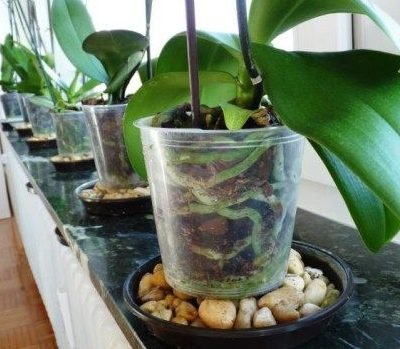orchid plant online,orchids online india,orchids online kerala,Dendrobium orchids care, Dendrobium orchids, orchid care, how to care for Dendrobium orchids, Dendrobium orchids care tips,orchid plant online kerala,orchids kerala,orchid online india,dendrobium orchid plants for sale,orchid plants for sale,buy orchid plants online,buy orchids online india,online orchid,online orchid sellers
DENDROBIUM ORCHIDS CARE AND GENERAL TIPS.
What are Dendrobium Orchids? What are best practices to follow in Dendrobium Orchids Care?
They are the most easiest orchids to grow and requires very less care compared to other species of orchids. They come in numerous colors and flowers very easily. They are considered as beginners orchids and you can expect flowers frequently. Very much resistant to most diseases and definitely the cheapest orchid you can buy. They can be even grown on trees which is their natural habitat. One notable thing about Dendrobiums is that our climate in India is very suitable for them and it can be grown in very hot and cold climate. We sell more than 50 colors of dendrobium orchids online through our website. Please Click Here to see our collections. Please check our tips for Dendrobium Orchids Care in following passages.
LIGHT REQUIREMENT :
Dendrobium orchids can tolerate much higher sunlight compared to other species of orchids. They can be exposed to morning sunlight followed up by 50% to 70% afternoon sunlight. Direct sunlight is to be avoided to prevent sunburn. If your dendrobium orchid is not flowering then it means its not getting enough sunlight. Please increase the sunlight to induce flowering. Dendrobiums can be grown in both hot and cold climate. It is very ideal for Indian climate. Following images shown the effect of direct sun on leaves of orchids plant. When it comes to Dendrobium orchids care, our climate is best suited for them so we don’t have to give much care for them.


The images shown are example of sunburn. Please change the location of your orchids if you notice white patches on the leave. Exposure to direct sun can harm your dendrobium orchids. Just don’t let the direct sunlight fall on it.
TEMPERATURE :
Dendrobium orchids will tolerate high temperature/ Cold climate and is perfect for Indian weather. They can also withstand moderate rainfalls. As we said this is one of the easiest orchids to grow in our climate.
WATERING :
Watering in the morning is always recommended so that it will dry up by night and there will not be any residual water left in the pot. Now the frequency of watering depends on the potting media you have used. You can water once in 2 or 3 days if the potting media used is charcoal. If you have used coconut husk as the major component of potting media then water once in 5 or 6 days. Always its ideal to just touch the potting media and feel the dryness. If its too dry you can water it without any hesitation. People always tend to over water the orchids and that is something which has to be avoided. Most of the times dendrobium orchids will do well without water upto two weeks. They can store water and use it when the conditions are dry. Let the water run through the plant for more than one minute. Don’t let water get stagnated on the pots. Make sure there is proper drainage.
LIGHTING :
Dendrobium orchids flowers very well in bright light. Please avoid direct sun as much as possible. If your dendrobium orchid is not flowering it means the light is low. Try to increase the light to induce flowering in your plants.
MANURING :
NPK manures are the best feed for orchids. You can use 30 10 10 NPK once a week followed by 13 27 27 NPK. Use both these ratio of NPK for best results. Dosage is one gram per liter of water for both these manures. Manuring after watering is good always. Click Here to buy.


This is a great trick to improve humidity for orchids. Just insert the pot on a plate (or tray) of pebbles with water filled in it. Don’t let the roots or any plant part touch the water. This will create a humid region around your plant making them to grow vigorously. Try it since we had great results. Also this will prevent snails entering the pots and attacking the plants.
Want to start your first orchid? Order from us at www.mgorchids.in
PEST TREATMENT
As a dendrobium orchid owner, you may face pest problems from time to time. These pests can cause severe damage to your plant, including discoloration, wilting, and even death if left untreated. However, with proper pest treatment, you can easily save your orchid from these pesky critters.
Here are some common pests that can attack your dendrobium orchids and the treatments you can use to get rid of them:
Scale Insects
Scale insects are small, oval-shaped insects that attach themselves to the stems, leaves, and flowers of your orchid. They feed on plant sap, causing the leaves to yellow and drop off. To treat this pest, you can use a soft brush or a cotton swab dipped in rubbing alcohol to wipe off the insects from your plant. You can also use a systemic insecticide to control them.
Spider Mites
Spider mites are tiny, reddish-brown pests that spin webs on the leaves and stems of your orchid. They suck out the sap from the plant, causing it to become discolored and wilted. You can treat spider mites by spraying your plant with a solution of water and neem oil. Neem oil is a natural insecticide that can kill spider mites and prevent them from coming back.
Mealybugs
Mealybugs are small, white insects that form cotton-like clusters on the leaves and stems of your orchid. They suck out the sap from the plant, causing it to wilt and die. To treat mealybugs, you can use a cotton swab dipped in rubbing alcohol to wipe off the bugs from your plant. You can also use a systemic insecticide to control them.
Thrips
Thrips are small, slender insects that feed on the leaves and flowers of your orchid. They cause damage by sucking out the plant sap and leaving behind small, silvery streaks on the leaves. You can treat thrips by spraying your plant with a solution of water and insecticidal soap. Insecticidal soap is a natural pesticide that can kill thrips without harming your plant.
In conclusion, pest problems are common in dendrobium orchids. However, with the right pest treatment, you can easily get rid of them and save your plant. Remember to always follow the instructions on the label when using insecticides and pesticides, and to keep your orchid healthy by providing it with proper care and maintenance.


